The complete guide to home viewing
Get Screen Gab for everything about the TV shows and streaming movies everyone’s talking about.
You may occasionally receive promotional content from the Los Angeles Times.
Weeks before the Black Lives Matter protests broke out around the globe in the wake of the senseless killings of George Floyd, Breonna Taylor and Ahmaud Arbery, inclusivity, the feeling of “otherness” and the struggle for an essential humanity were already on the minds of the eight actors gathered via video conference for The Envelope’s annual Drama Roundtable conversation.
“All of us play these characters that society could perceive of as ‘other’ and decide to limit the way that we deal with each other’s depth as human beings and complexity. That is our job as storytellers, to make people take pause and realize that human beings, no matter who we are, we’re complicated and rich and deep,” said Kerry Washington during the May 17 chat with L.A. Times culture columnist LZ Granderson. “And whether we look like you or don’t look like you, there are elements to our story that are unique and precious,” the “Little Fires Everywhere” actress added.

Regina King stars as Angela Abar and her alter ego Sister Night in “Watchmen,” a series that launches its story with the 1921 race massacre in Tulsa, Okla., before shifting into a fictional aftermath. “What was really attractive to me about the character is this — which I think is something that so many humans experience and don’t realize they’re experiencing — is this trauma that she’s inherited,” King said. “So much of her life right now is informed by that trauma [from the massacre of Black residents and business owners]. She’s kind of created this world where being an outsider is actually a safe space to be.”
Sandra Oh noted that even when her ethnicity is not the point of her casting, she tries “to infuse more pieces of me into my character’s ethnicity and cultural background. We carry our culture, we carry our history,” the “Killing Eve” star noted.
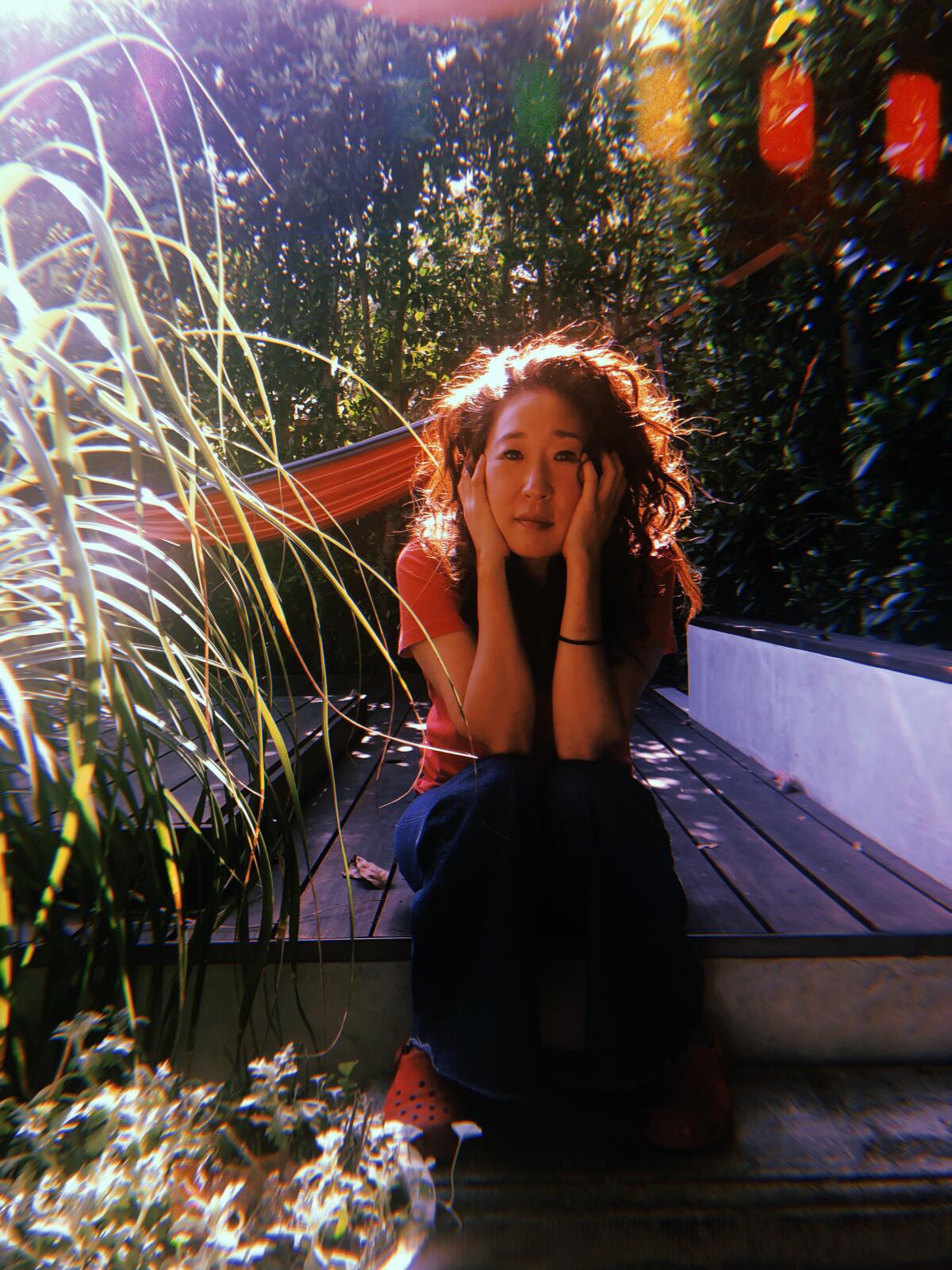
“I was reading President Obama’s commencement speech, and it was talking about being alive to one another’s struggles at this time” added “Succession” actor Jeremy Strong. “It feels like what you guys are talking about and the way that you’re doing that through storytelling is a way that we [as actors] might be able to contribute to that, by making that struggle alive for the audience.”
Cate Blanchett, who stars in the limited series “Mrs. America,” Hugh Jackman, from the television movie “Bad Education,” Nicole Kidman of “Big Little Lies” and Cynthia Erivo of “The Outsider” joined in the conversation that veered from uncovering secrets to the pandemic to polarizing stories. Their conversation here has been edited for clarity and length.
Ted Danson, Jane Lynch, Linda Cardellini, Annie Murphy, William Jackson Harper and Nicholas Hoult discuss their fears and their funniest moments.
So many of your shows deal with the themes of belonging and trying to find your place in this world. Let’s start with Kerry. What’s driving your character in “Little Fires Everywhere”?
Kerry Washington: I think what’s driving Mia is the determination to carve a path for herself. Because I think she has decided that she doesn’t belong in any traditional sense. And so her fierce commitment to live this kind of unapologetic life outside of the boundaries of normal culture is because she’s created a world where she belongs just to her daughter, where they belong to each other and they kind of reject any other need to belong in other spaces or with other people.
What about you, Cynthia?
Cynthia Erivo: The thing that’s probably driving Holly is the search for the truth, no matter what that might be. She just is an outsider because of the way she processes things. She finds it quite difficult in the traditional sense to communicate with people. And I think her journey is about finding ways to find connections. And in those connections, being able to express what truth is hers and what truth she believes will help figure out the problem that they’re all facing. I do believe she’s on the spectrum and I wanted to make sure that that did not mean that she didn’t have the humanity that I believe everybody has.
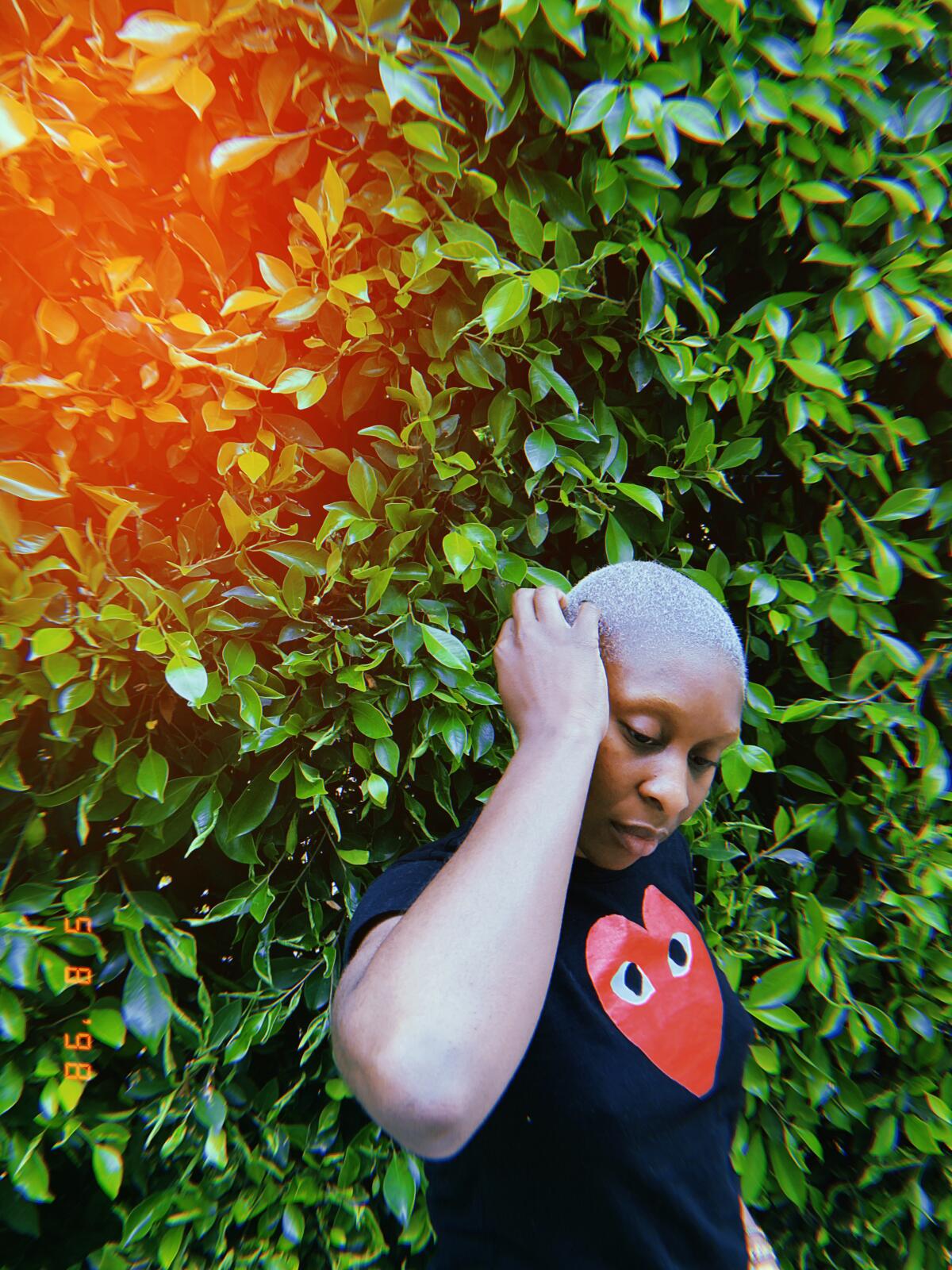
Jeremy, your character struggles to find his place both within the family company, but also in life itself.
Jeremy Strong: I think sort of the engine behind this character is in the disparity between who he is and who he wants to be. And the pain in that disparity. I’ve always loved the sort of modern antihero. And I think of Kendall Roy as a sort of non-hero, an un-hero, someone who’s been anointed with this power, and by birth and station is required to act heroically, but he’s not equipped to do so. So he’s given this burden that he can’t carry and is constantly falling short of the mark. Which is something I can identify with.
How so?
Strong: I mean, aspirationally, as an actor, falling short of a mark is something that one feels, or I certainly feel. I was doing a Conor McPherson play years and years ago, and Conor McPherson wrote in the liner notes that his characters have been summoned by God to the stage to tell the truth. And I thought that was such a beautiful ideal to sort of strive for. And one thing —
Cate Blanchett: — To fail by! It’s like, wow, how do you live up to that?
Jeremy Strong, photographed at Helenekilde Badehotel, Tisvilde. Denmark, in an excerpt from the 2020 Los Angeles Times Envelope Emmys Drama Roundtable.
Cate, a lot of people see Phyllis Schlafly as the villain of the fight for the Equal Rights Amendment. But she was representing an existing perspective. How did you find a balance with that?
Blanchett: I identified as a feminist, I thought it was about equality. I didn’t know it was a polarizing issue in the States. And I also thought that the Equal Rights Amendment was ratified. So it was a huge journey for me to discover that in fact, there was an equal and opposite movement in traditional women who felt marginalized by the social revolution ... in the 1970s.
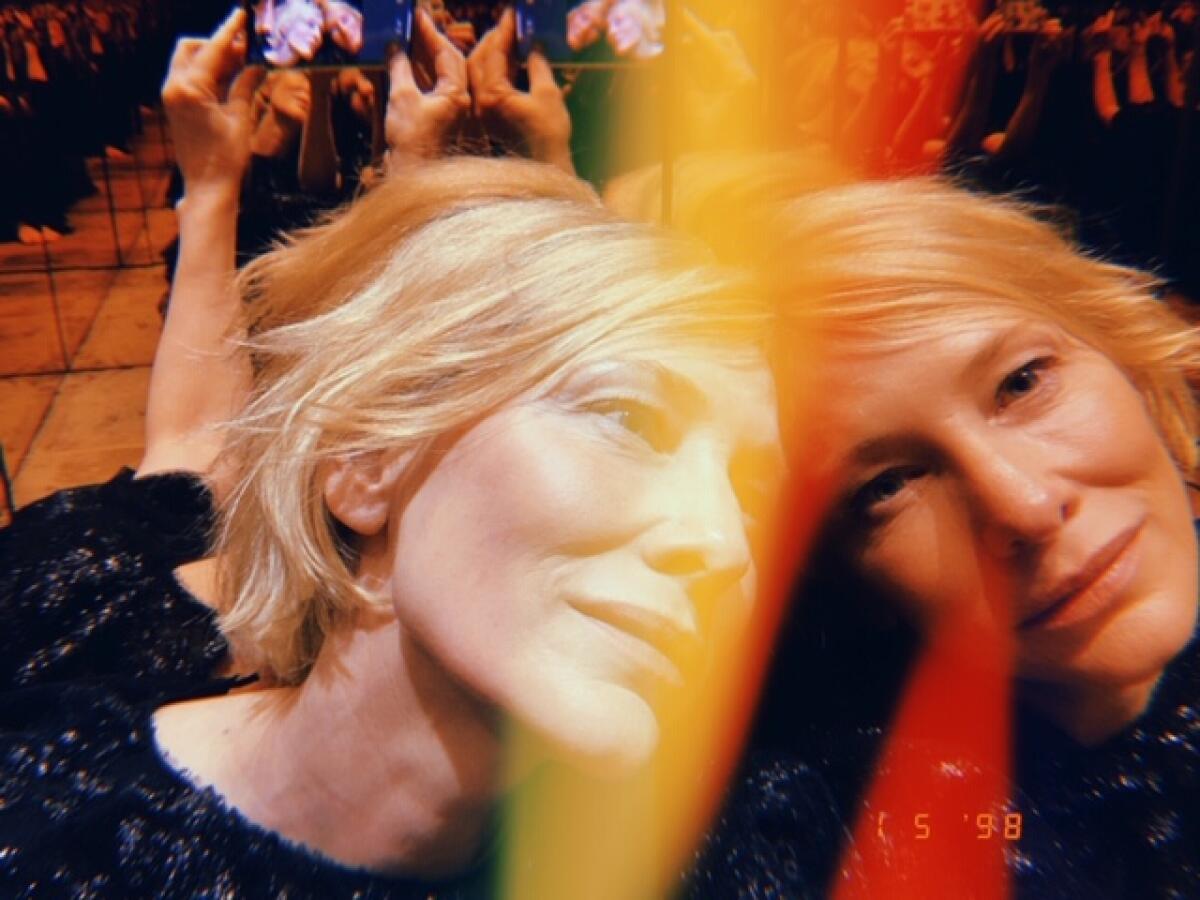
All of that kind of pejorative language around being a feminist — you were a man hater or anti-family — that actually came out of the rhetoric of Phyllis Schlafly, who was really protecting what she saw as a communist threat. I found it really challenging to play someone who you would think, “That is so far away from my set of values” and to try and find the points of similarity. What was their childhood like? What are they deeply frightened of to behave in such a polarizing way?
There are those who thought Phyllis should have been demonized more.
Blanchett: I knew that it was going to be abhorrent to some people and hopefully provocative to other people and hopefully inclusive. The fact that women are not a monolith. ... No group is a monolith, no matter what race or what gender or whatever sexual persuasion, and the desire of the series was to present all of those different points of view. Of course we will fail, because you can never present all of the points of view. But we’ve hopefully presented as many as we possibly can to make the conversation interesting and passionate for an audience.
Cate Blanchett in an excerpt from the 2020 Los Angeles Times Envelope Emmys Drama Roundtable
Hugh, you’re also playing a character from a real event, a school superintendent convicted of grand larceny. Do you prefer real-life stories?
Hugh Jackman: Not overly. There’s a weight of responsibility added to it, which I actually find challenging. It only struck me a week ago that I’ve done two films that portray the worst moments of somebody’s life [“Bad Education” and “The Frontrunner” about the fall of presidential candidate Gary Hart]. You realize that the Gary that I played is still alive, and it’s still very painful. So you have to have a really good reason to want to make the movie. And obviously we did.
And the same with playing Frank Tassone, our job is to show every side of it. To show, yes the background, why this happens, because all of us are fallible. All of us are susceptible to doing things we’re not proud of. How is it possible that someone like Frank could go so far off from being very respected, clearly motivated out of service to others, to being in prison for four and a half years? I find the cautionary tale of that fascinating.
Why do you think Frank Tassone committed the crimes that he did?
Jackman: I think he started off wanting to make a difference, wanted to get into public education. He became one of the most successful school superintendents in the country. What started as a little small thing, like a lunch, a $30 lunch [he charged to the school account], that he went to the business office and said, “Listen, let me write a check for that,” and the business office said, “Oh, don’t worry. You work 14 hours a day. Let it go.” Just that little chink became quicksand, and before he knew it, he was drowning. I don’t think he or any of the 26 people who were involved in the scandal could see it coming. I think they were what we would say good people that gradually, within two years, were basically complicit in this huge, $12-million illegal fraud.
To me, humans, it’s amazing how we can convince ourselves, when something’s helping us, that it’s OK.
Washington: Don’t you also feel like every great character needs some secrets? You don’t even know who your character is until you know what your secrets are.
Jackman: 100%. It’s always a great game at a dinner party just to kind of look around the table and work out what the secrets are.
Blanchett: Can we play it now?
Regina King: I like when you’re doing a series, and then you discover your character’s secret or one of your character’s secrets along the way. You had an idea of where you were going, and the writer threw that loop at you. You’re like, “How am I going to navigate this? How am I going to weave this in?”
Series creators, including Chuck Lorre and Dan Levy, exchange ideas on what new TV productions might look like. Think cellophane for starters.
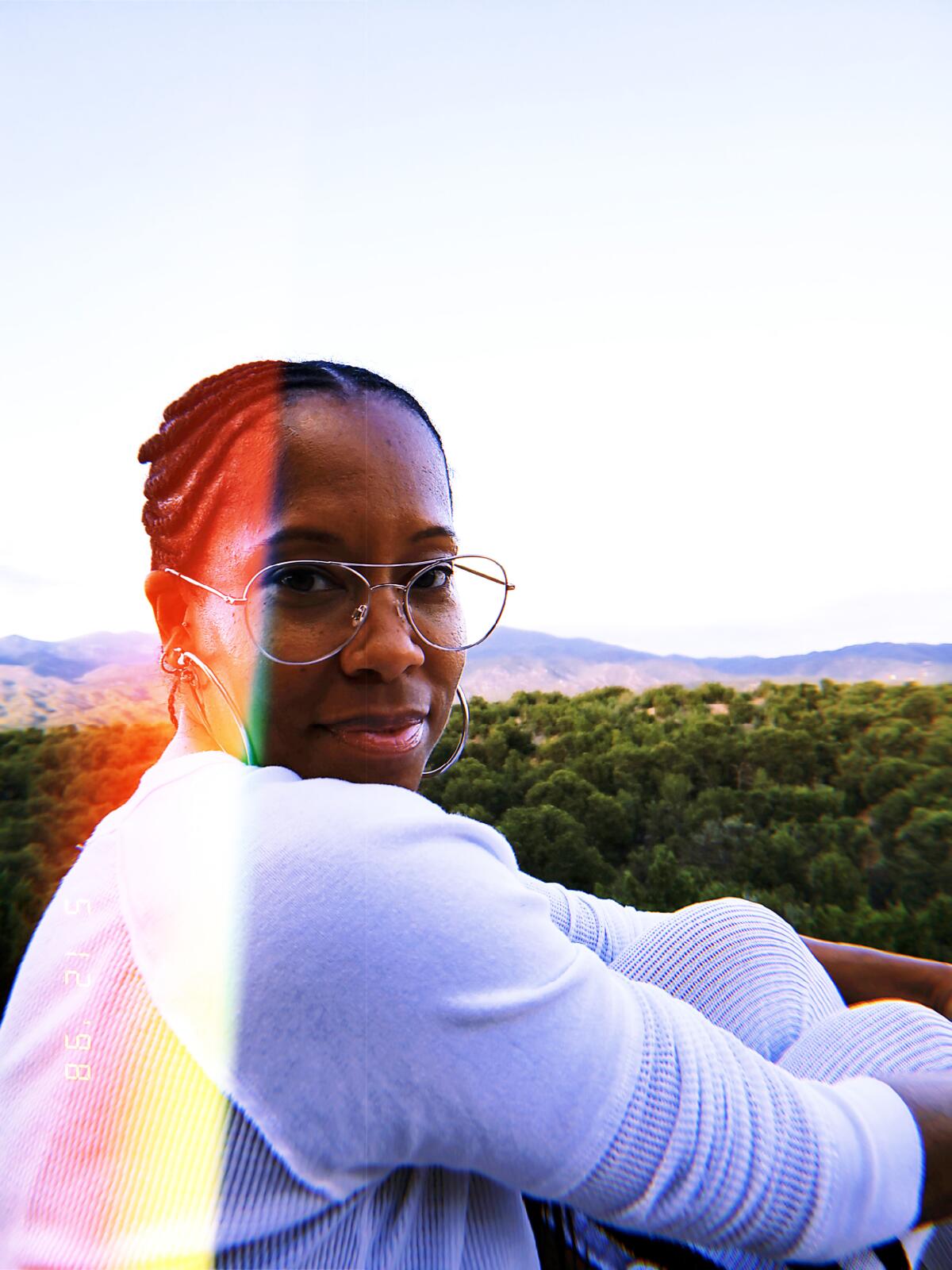
Regina, “Watchmen” is interesting in that you’re in an alternative universe, but you use very real conversations in terms of race relations and what happened in the past. Is that what attracted you to it?
King: Honestly, what attracted me the most is that Damon Lindelof was writing it. Everything he does is complex. It’s layered. It’s not two-dimensional. But once I got into the material beyond the pilot script, what was really attractive to me about the character is that trauma that she’s inherited. So she finds comfort in just having created this little safe space with her family and then having an identity outside of that small nucleus that’s her family, and just navigating that.
Regina King in an excerpt from the 2020 Los Angeles Times Envelope Emmys Drama Roundtable
I’m used to seeing women of color be demonstrative and you perform with such great nuance. What was that like?
Sandra Oh: It’s pretty great. As my authorship of my own work has grown, I’ve been trying to infuse more pieces of my character’s ethnicity and cultural background. Like at the very top of Season 3 in ‘Killing Eve,’ you see Eve in New Malden [outside Central London], which is actually the largest gathering of Koreans outside of Korea. I wanted it to be set in a place where Eve could try to disappear for a while. It was just a small bit of the show, but I wanted to bring the flavor of that because we carry our culture, we carry our history. And typically, white Hollywood does not write our culture, does not write the depth of our culture.
I remember talking to the sound people, it’s like, “Hey guys, you are layering in the sound of me wearing shoes in the house. I don’t wear shoes. My character doesn’t wear shoes. I know you don’t see the feet. But don’t layer in the sound of shoes in the house, because that doesn’t happen.” But maybe these people, mostly white English dudes, don’t know that. It’s something that you might not even think is important, but it is because that’s how we start building the nuance of a character.
Sandra Oh in an excerpt from the 2020 Los Angeles Times Envelope Emmys Drama Roundtable
Kerry?
Washington: We have a tendency in our representation of humanity to be really reductive and to want to put people in these kind of limited boxes of identity. One thing that was exciting for us on “Little Fires” was that the character of Mia in the beautiful novel by Celeste Ng was written ambiguously with regard to race. And so our choice to make Mia Black, in some ways represented a kind of progress. The second layer of what makes that matter is then what Sandra was talking about, is being in the writers room and saying, “OK, if we’re going to make her Black, how does that require the story to shift? What are the elements that we can pull out and grow, what’s unique about her experience?”
Kerry Washington in an excerpt from the 2020 Los Angeles Times Envelope Emmys Drama Roundtable.
Nicole, your character Celeste seems to be fine, but she’s struggling internally.
Nicole Kidman: For us in making a second season was trying to deal with the aftermath [of her husband’s death in Season 1] and go, “What is the truth?” Because I think a lot of people wanted the female characters to come out healed, and strong, and capable, and all of these things that would have been satisfying. And the truth is, particularly with somebody like Celeste, that’s not the case. It’s “Now I have to actually deal with all of these emotions that come with the loss.” It’s about, “I still want him,” and that addiction to a person, and the way in which that plays out is really fascinating to me.
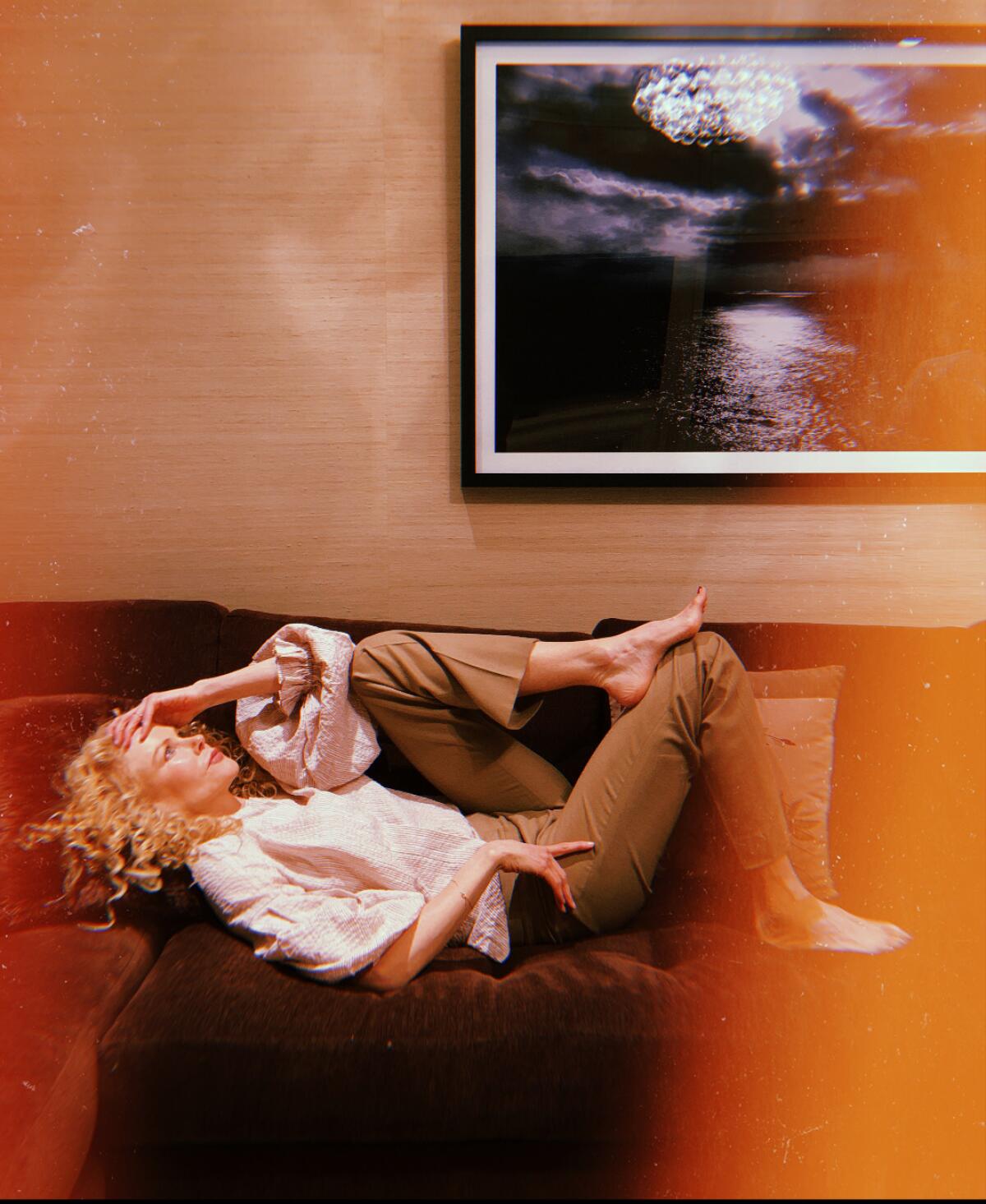
But also wanting to just say something about being able to explore all these different cultures and ideas. As a producer now, we have a show that we’re looking to do in Hong Kong, that has a lead Korean female, has a lead Chinese female, has a lead American and a lead British. And that future is so exciting. But my gosh, with what’s happened to the world right now, it’s going to get harder and harder. And that’s terrifying. We need people like Sandra, going, “This is how you have to adjust the writing.”
Oh: There is an equal force: As soon as things start opening up, we’re going to start making this stuff, and there is this other force that comes in called a pandemic, that seems to be stopping the flow of making things in a different way. And I’m interested in how we increase an interior type of confidence and resilience and clarity in what is essential to make. This time for me [in sheltering at home] has been spent in contemplation. And one of the things that has come up for me mostly is: What is essential? And so even what you’re saying, Nicole, it’s like all of these things are happening and now we have all these other challenges. It is up to us, who have some ability and knowledge to impart, to try and find these different avenues.
Kidman: There’s so many opportunities, we’ve all been working so hard to create these paths and just trying to keep them open and forging ahead ... but I suppose that’s why I was so excited to just have this conversation, because I haven’t had a lot of conversations about what the future holds, and how do we keep doing this.
Nicole Kidman in an excerpt from the 2020 Los Angeles Times Envelope Emmys Drama Roundtable.
Oh: I am afraid, I’m sure like we all are, that we’re going to retract.
Blanchett: I think it’s about keeping the conversation alive. Nothing is normal anymore, but somehow the conversations have been much more open. People have been more alive to reimagining things in new ways. So in fact, it’s a very creative space that we find ourselves in. It’s a devastating space, for millions and millions of people, but it’s about attending to things in a slightly different way — the thing we have to do every time we go into a writer’s room. We have to pretend that this story has never been told before, and we’re going to look left rather than look right. I think this has really shifted people’s quality of listening. I hope.
Erivo: There is something really wonderful as a performer who’s in music and acting; I’m watching musicians literally take the gear and shift in a different way. People are finding really wonderful creative ways to still make music, to still connect with others in that way. And I think that as performers, full stop, we have this wonderful privilege of being able to make what we want. And so I guess it’s not necessarily where we’re going to make it, or when; it’s how do we shift and create something that just feels and may look different to what we’re used to? And that way, we get to open the doors to who we’re talking to and who we create with.
Cynthia Erivo in an excerpt from the 2020 Los Angeles Times Envelope Emmys Drama Roundtable.
Jackman: I want to hear the music immediately, so if you wouldn’t mind singing one of those songs now, that’d be great. It’s funny, but the whole world is sort of experiencing something unifying. Of course, the experience is very different for different people. And that’s something we need to really talk about. But in terms of storytelling and opportunities, it’s sort of blossoming and who knows what’s going to come out of this? Because we need to make sense of what’s happening, as a planet, as the human race.
Hugh Jackman in an excerpt from the 2020 Los Angeles Times Envelope Emmys Drama Roundtable.
For those of you who have ongoing series, do you imagine seeing some of these storylines written in?
Strong: I have lobbied hard to set [“Succession”] very squarely in this [pandemic] moment that we’re in. There’s [nearly 21 million] people unemployed in America, and I just read that there’s an $800 takeaway sushi box at Masa. And that is something certainly that speaks right to the core of the show that I’m working on. I would think that the writers have to write from this place that we’re in. Surely, it’s the stuff of great and real drama.
Washington: The themes of “Little Fires” is kind of what it means when the haves meet the have-nots and how you begin to make sense of bridging the divides between worlds and parenting styles and ideologies and consumerism. Because we’re more in contact with the world than we sometimes even know, I think we’re already deeply in the themes of what this pandemic is all about. It’s going to be there, this need to kind of deal with our hearts breaking down or breaking open or breaking in whatever ways they’re breaking.
What has it been like over the years watching so many more women be behind the lens?
Erivo: What it’s been for me particularly is inspirational. Both Regina and Kerry will know because I’ve reached out to them. So, if we do end up going into a second season, one of the things I’ve really required was that there were more women behind the camera and that there were more women that looked like me. There is a lonely thing in that, on this particular series. I wanted to be able to share that with people who would understand what it is to be a Black woman, and what it takes to create the detail that this kind of woman needs. It means that I don’t have to find ways to explain how I’m feeling or explain why she has the nails or ... those little details that Sandra was talking about that make us us.
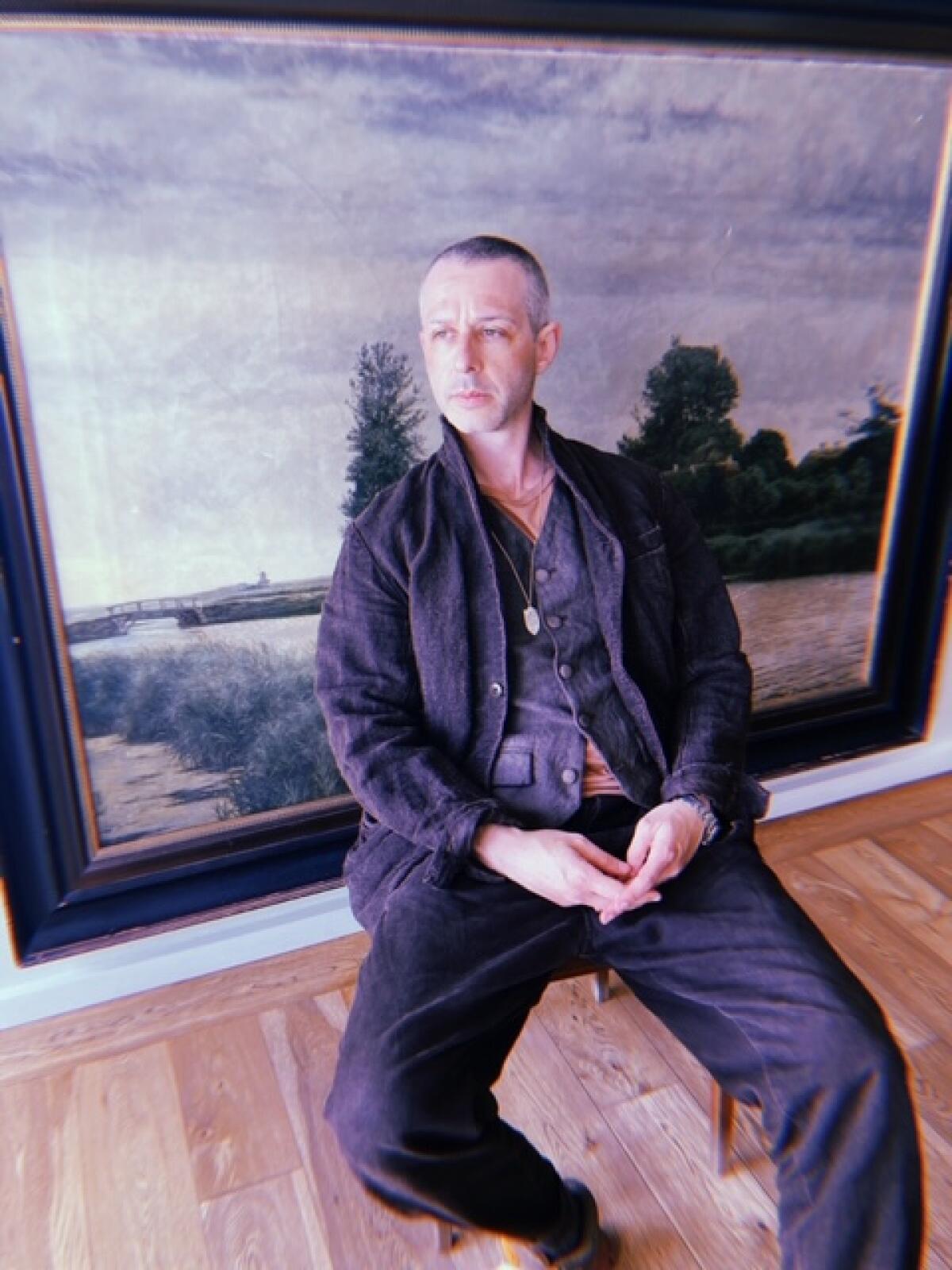
Strong: I read something that you said once about being Harriet Tubman hard? I thought it was great, but I also think it’s something that everyone should sort of take up the mantle of, you know, right now.
Erivo: Yeah. Yeah. The idea that if it isn’t as hard as it was for her, then you can probably get through it. Whenever it got really difficult [on set], the question we would ask is, was it HTH? Which was Harriet Tubman Hard, and if it wasn’t HTH then we could get through it and we’d keep moving forward.
Washington: There’s the message for the pandemic.
Five seasoned entertainment journalists predict the shows and performances the Television Academy will honor with Emmys; do you agree with their picks?
The complete guide to home viewing
Get Screen Gab for everything about the TV shows and streaming movies everyone’s talking about.
You may occasionally receive promotional content from the Los Angeles Times.